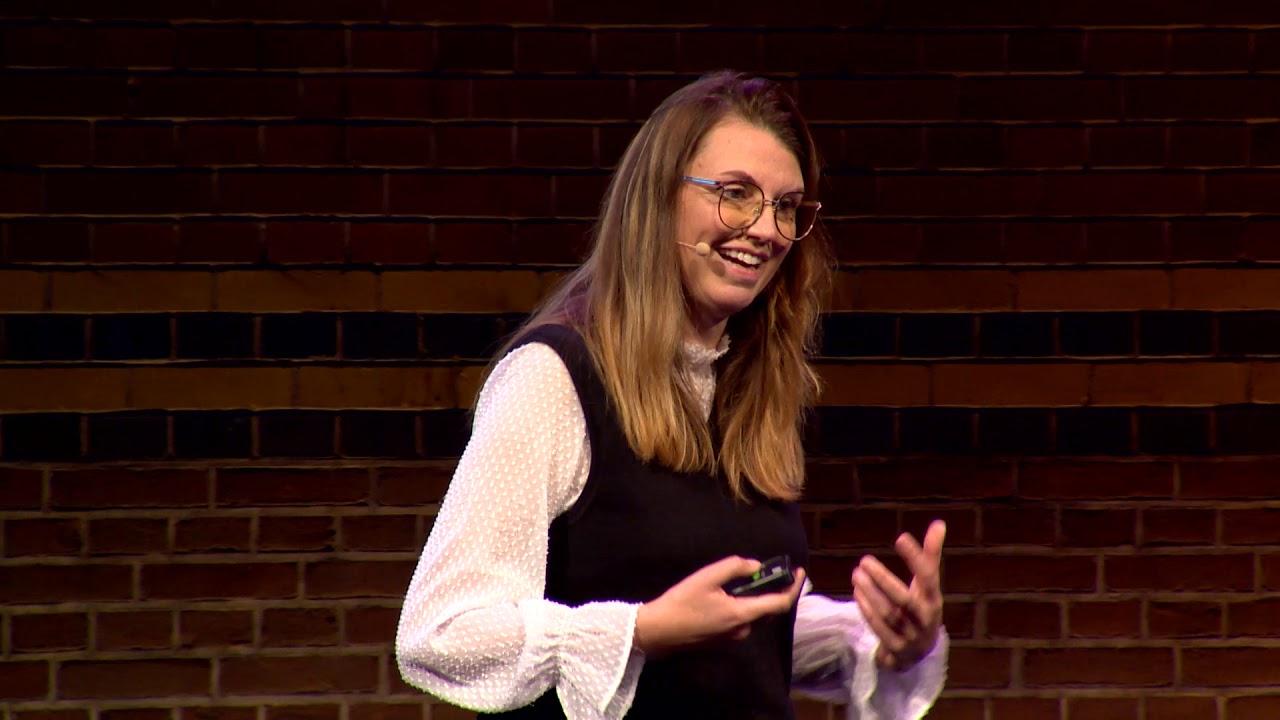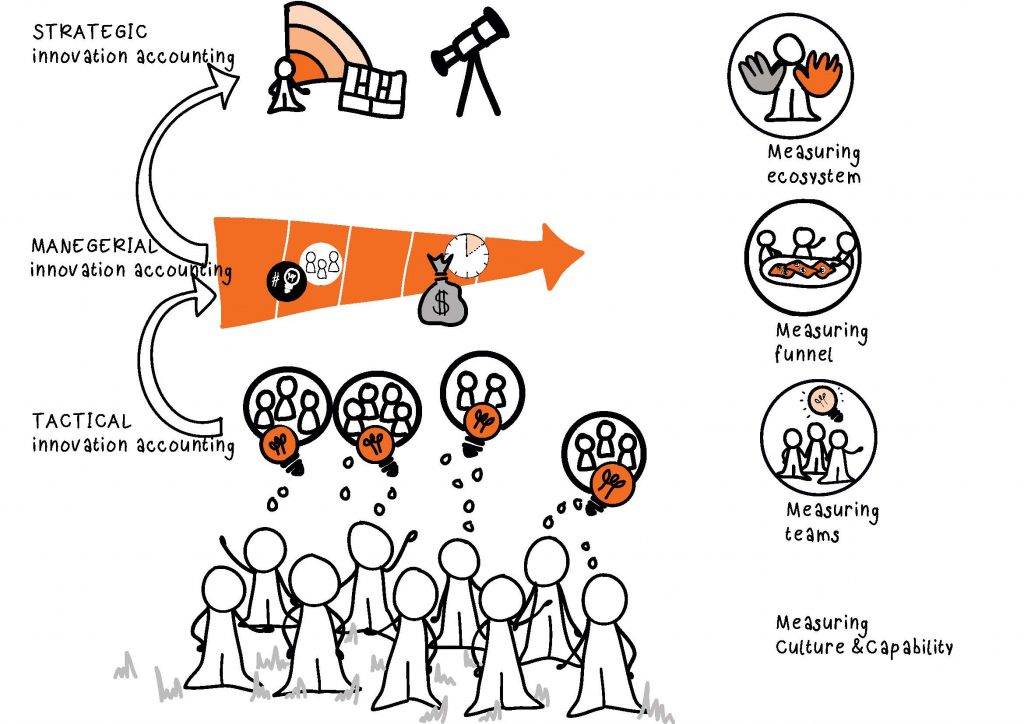A leap forward in AI ethics and safety
July 5, 2024

Esther Gons : Innovation Accounting is a topic covered in our first book, The Corporate Startup, but it is still very much an unknown area for many people. The lean startup movement has taught us so much about how to start de-risking the search for New Business Models and the need for accountability if you want to do that in a data-driven manner in a startup. However, setting that up in a corporate environment brings a set of entirely new challenges.
The Corporate Startup has been a bible for many companies in setting up an environment for innovation within their current system. Corporate Venture building is on the rise and seen as a needed avenue for innovation within a company. With that, the need for governance and a separate system for managing these ventures is becoming apparent. But within a corporate setting, it is not just the accountability of single teams that is important. You need a whole system to manage multiple ideas through their high-risk and uncertain journey from idea to business model. Without that new system, it is impossible to succeed with corporate venture building in a company. Innovation Accounting is a big part of that system. Innovation Accounting has massively evolved since Eric Ries coined it in the Lean Startup. However, few articles and books about the topic describe the system needed within a corporate. Dan expressed the desire to write a book about this topic three years ago when we were recording the online course for the Corporate Startup (Our first book). At the time, I had just started working on my software tool for Innovation Accounting, GroundControl. -Yes! You can check it out at togroundcontrol.com.- So it made a lot of sense for me to join forces with Dan again and share our lessons with the world. Sharing all of our practices and theories around setting up a new business model innovation system within a corporate structure. That system and all of the elements and indicators needed is what we are describing in the book. You can use the book as a blueprint. If you understand the basic principles and how the system needs to be built up for it to function, you can start building your own.
The timing seems right. Not only for people with ‘innovation’ roles are looking for new ways to evaluate their efforts. Since posting on LinkedIn about the book, people from finance, risk, and treasury roles have also reached out. They are seeing a shift in their trade and are looking for new ways of looking at innovation. Although Innovation Accounting does not mean innovating the current state of financial accounting, it is undoubtedly affecting these functions.
Innovation accounting tells the story of innovation before it is returning revenue. If that story is not made visible, there is a danger of it being shut down by people in precisely these roles. I am very eager to explore that avenue and fully unlock the innovation potential in corporates. Making the combination of validated learning and innovation accounting accepted worldwide as the standard way to de-risk new high-risk venture ideas (business models)
E.G. : I would have to choose a drawing for that. I am a holistic thinker, seeing the bigger picture all of the time. My visual-spatial brain helps me see patterns and models that we need to help create or change the systems around us. For a complex system such as innovation accounting, being able to structure the model and help others see how it can work is what I do best.

This model represents the layers needed in a working innovation accounting system and the abstraction flowing from one layer into the other. It also visualizes my belief that the teams doing the actual work, innovation, are at the base of everything. Without them, corporates can govern and direct all they want, but there will be nothing there to manage. So the teams and their abilities to learn fast, experiment, and validate working business models is where you need to start if you truly want to build venture-building capabilities within an established company. Just do not forget that you can only evaluate them with a new set of KPIs and a VC approach to investing. Our book describes all of the elements within this model and how they interact. It will be released around the 9th of September and available in English in online shops. You can check innovationaccountingbook.com for links.
E.G. : I believe in the blockchain, not as a cryptocurrency enabler necessarily, but as a system that enables transparent co-creation and contracts. There is a considerable value in trust. The blockchain can enable that trust in a large group of people that do not necessarily know each other—creating the basis for new ecosystems and infrastructures. I think it will allow for a new era of software. I also already see the emergence of unique Ecosystems—both in the art world and in the game world. For example, the blockchain can evaluate digital art, authenticity, ownership, and valuation in the art world. Typically things that would be problematic to validate can now easily be registered. In the game world, especially with ‘world of warcraft’ like games, tokens based on the blockchain can move the in-game economy all of a sudden to the real world, allowing you with an income earned in the game.
The world is getting more complex and is changing faster than ever before. So I think we have to realize that everything humans are doing right now that is a repetitive job will be taken over by digital automation (with or without AI) or robotization. This will change industries and the roles humans have in the system. For example, in the financial accounting industry, much more straightforward registration and reporting can be taken over by automation. This means that there will be a shift for a lot of companies. They will have to reconsider how they can still add value.
Another trend is not so much a trend as well as a necessity. Those who have the privilege to make choices need to involve climate in every decision we make. Green solutions need always be part of the equation. Why produce something that requires tech or fuel if you can solve it ‘naturally’ as well. Can we harness our creative thinking power into more green and frugal innovations? We should also tackle our transition towards sustainable resources on a far larger scale. Why not look at it from a European perspective, combining technology, insights as well as resources? Instead of looking internally at what a single country can do.
E.G. : Our world is getting more and more complex. Adapting to that is also getting complex. Sometimes the final solution is not clear yet, and sometimes change consists of many separate but connected elements. I think it is essential to realize that change can only happen if people are DOing things that enable that change. Most people can’t act if there is no clear answer or too many elements in play.
The trick is to start making things smaller. If the solution isn’t clear yet, look at what you already know and decide what needs to be achieved in the next three months. Focus on that to make it happen and iterate from there. If there are too many elements in play, look at all the individual components and decide what makes sense to do first. Focus on that and move from there. Next, start saying no to all the other things that are not part of what you have decided to focus on. Sometimes that means giving responsibility for some things to other teams or departments. That may feel counterintuitive, but doing less will make you achieve more.
E.G. : I want to take a step back again. Having done so much strategic and pioneering work makes me realize that mentoring startups is where my passion lies. I keep saying that it all starts with the teams doing the innovation, and I have so much experience helping startups that it only makes sense to start there.
Even though there are more books around this topic on the market, I feel there still is room for a very practical and visual book on how to DO and keep DOing validated learning. There is so much that I assume common knowledge that could still help a lot of people doing their jobs of learning and validating. All of the lessons learned and best practices, examples of the startup world. At GroundControl, we have also built a framework for innovation that we have tested with many startups and corporates; The NEXT Canvas. We wrote a lot of blogposts around our learnings over the last few years working with the framework. Finalizing it into a practical handbook would be the next logical step.
Thank you Esther,
Thank you Bertrand
The book: Innovation Accounting, Esther Gons, Dan Toma, BIS Publisher, 2021.